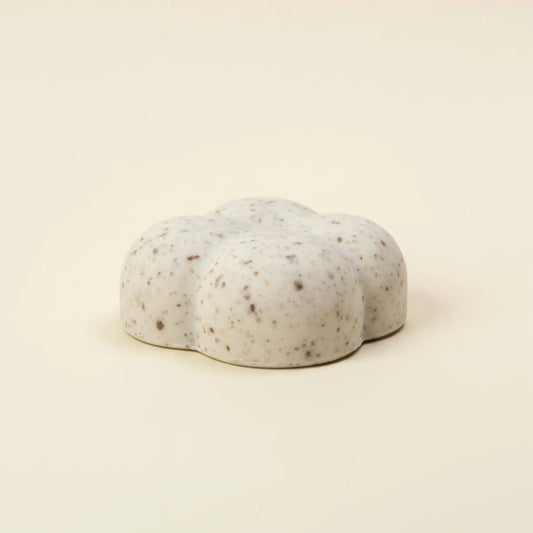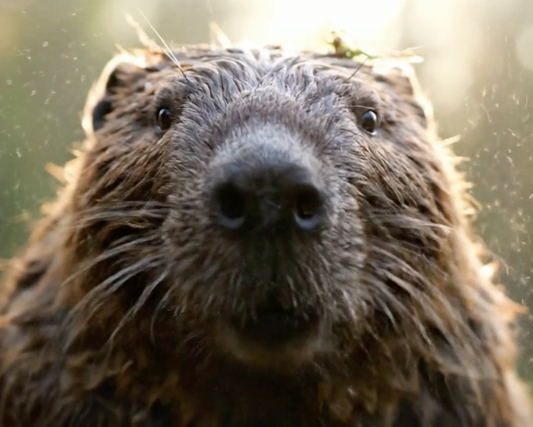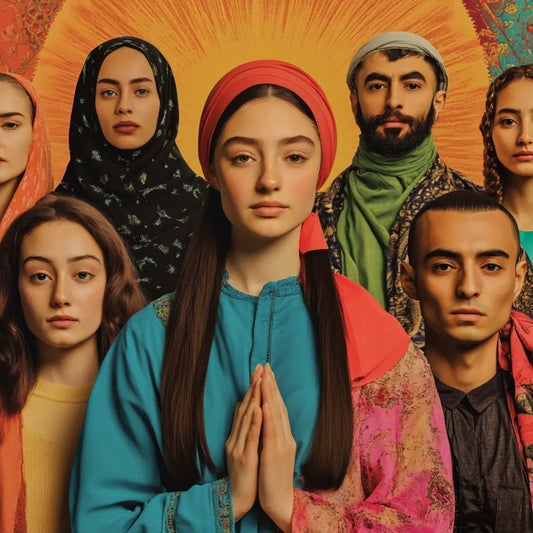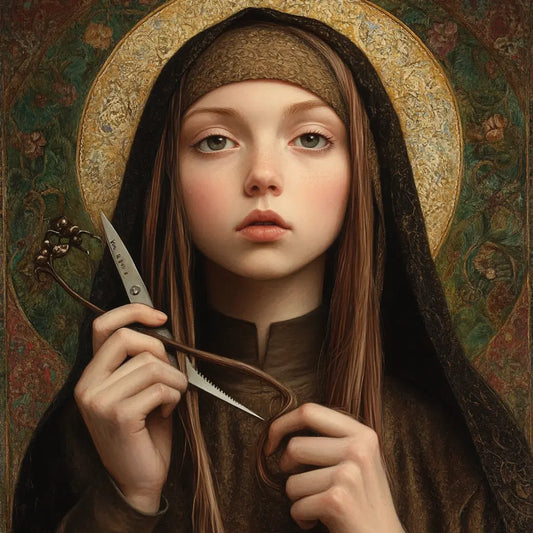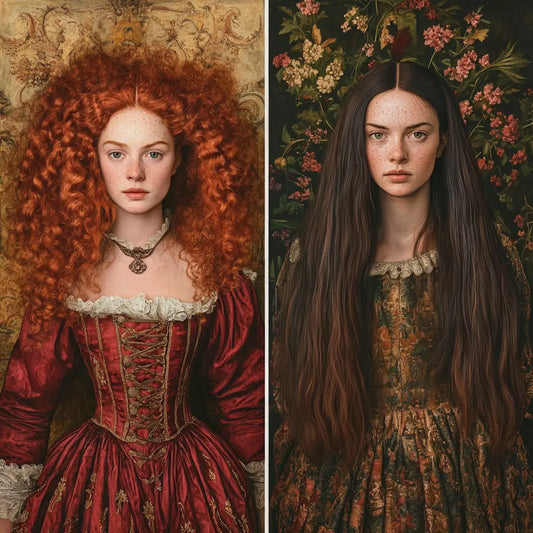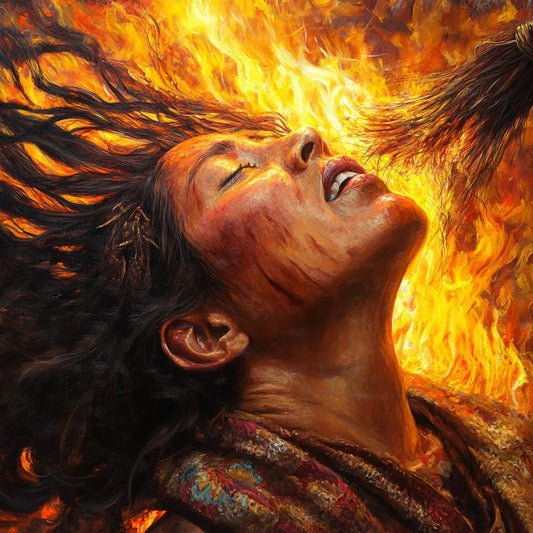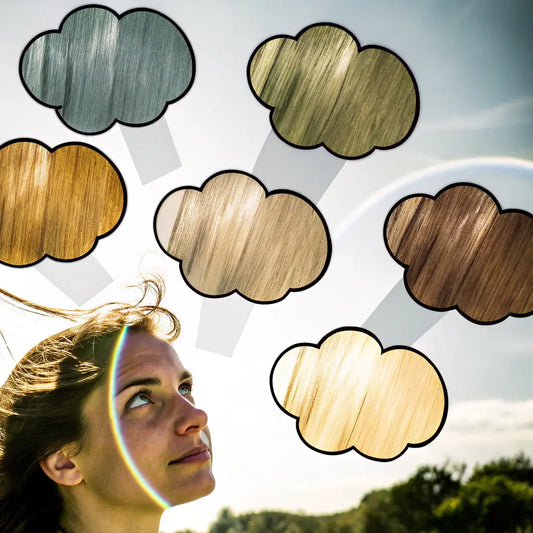Hair holds deep cultural and spiritual significance in many indigenous communities around the world. It is considered not just a physical attribute, but also an extension of the human spirit, often associated with life energy, identity, and ancestral wisdom. Different traditions have unique rituals, taboos, and ceremonies related to hair, reflecting its importance in maintaining balance, protecting spiritual energy, and strengthening connections to cultural heritage.
In this article, we will discuss the spiritual significance of hair in various indigenous cultures, focusing on its use in festive ceremonies, rituals, and how hair reflects broader beliefs about nature, community, and the cosmos.
Hair as a symbol of sacredness in indigenous peoples' spirituality
Hair as a symbol of spiritual power
In many indigenous cultures, hair represents spiritual power and personal identity. For example, in Native American traditions, hair is often grown long to represent spiritual strength. Cutting hair symbolizes loss, mourning, or transformation. In some African cultures, hair is considered a powerful conductor of spiritual energy. For example, the Himba tribe of Namibia use ochre and butter fat to care for and protect their hair, symbolizing not only beauty but also their connection to the land and their ancestors.

- Fun fact : Among the Lakota Native Americans, it is believed that hair reflects a person's life path. When it is cut, it signifies the end of a spiritual journey or an important stage in life.

Sacred hair care and taboos
In indigenous cultures, hair is often considered extremely important, and there are strict taboos surrounding its cutting or care. For example, in the Quechua culture, located in the Andes, hair is cut only on important life events. It is believed that cutting hair without proper preparation can cause spiritual disturbances. Hair is often combed and braided with a specific intention, which symbolizes unity and strength. Braiding hair is a communal practice that is passed down from generation to generation.

- Cultural insight : In Navajo culture, hair is never combed after sunset because it is believed to attract negative energy or evil spirits into a person's life.
Cultural examples and historical insights
- Maori culture (New Zealand) : For Maori, hair is considered tapu (sacred), and the head is considered the most sacred part of the body. Traditionally, hair cutting is only done during ceremonies or as a sign of mourning after the death of a loved one.

- Himba Tribe (Namibia) : The women of the Himba tribe from Namibia cover their hair with otjize (a mixture of fat and ochre), not only to protect it from the hot desert climate, but also as a spiritual act that connects them to the land and their ancestors.

- Sikhs (India) : In the Sikh religion, hair is considered a gift from God, and believers are encouraged to keep their hair in its natural state. Growing hair is a symbol of spiritual discipline and connection to God.

- Hopi Tribe (USA) : Members of the Hopi tribe often braid and style their hair in ways that reflect the tribe's cosmology. For example, unmarried women traditionally wear a unique squash blossom-shaped hairstyle, which symbolizes fertility and growth.

The significance of hair in religious rituals
Hair cutting during ceremonies
Cutting hair has significant symbolism in many indigenous cultures. Among the Plains Indians, hair is cut as an expression of mourning. It symbolizes loss and the loss of the spiritual energy that the hair represents. Similarly, in Hinduism, the mundan ceremony, in which a baby is cut for the first time, is considered a cleansing act, freeing the child from the karma of previous lives.

- Fun fact : In Papua New Guinea, Huli men grow their hair to create elaborate wigs that they wear during initiation rituals and ceremonies, symbolizing their maturity and status.
Hair as a sacrificial element in religious ceremonies
Hair is also used as a symbol of sacrifice in many local and global religions. In Hinduism, millions of pilgrims offer their hair at temples such as Tirupati in southern India as a sign of devotion and humility. In some Buddhist traditions, monks shave their heads during ordination ceremonies as a sign of renunciation, turning away from worldly life and striving for spiritual purity.

In indigenous cultures, hair offerings are made to deities or as part of ceremonies to honor the land, spirits, or ancestors. These offerings are believed to carry the essence of the person, making the ritual deeply personal and spiritual.
- Historical insight : Hair sacrifices were also important in ancient Egypt, where people shaved their heads and offered hair to the gods as a thank you for blessings or to ask for divine protection.
Myth busting and interesting facts
-
Myth : Long hair has always symbolized spiritual purity in indigenous cultures.
- Truth : While long hair is often a symbol of strength, in many cultures, cutting hair is an important spiritual act. In Native American traditions, hair is cut during mourning to express loss and release emotional burdens.
-
Myth : Hair is considered sacred only in certain indigenous cultures.
- Truth : Hair holds spiritual significance in many world religions and indigenous cultures. From the head-shaving of Christian monks to the sanctification rituals of Buddhist monks, hair is a universal symbol of spiritual devotion.
- Fun fact : In India, the Tirupati temple collects over 500 tons of donated hair every year. This hair is auctioned off, with much of it used to make wigs and hair extensions, generating millions of dollars in revenue.
-
Myth : Cutting hair is always a sign of loss in spiritual traditions.
- Truth : In Hinduism, cutting hair in a mundan ceremony is a joyous event, symbolizing the child's purification and preparation for the future.
- Fun fact : In Navajo tradition, hair is often braided at dawn to capture the positive energy of the new day. Braiding hair in the morning symbolizes order, harmony, and readiness to face the challenges of the day.

Practical tips for participating in hair rituals
- Respect cultural practices : If you are invited to participate in a spiritual or cultural hair ritual, it is important to understand the meaning of the rituals. Always approach these traditions with respect and openness.
- Beware of hair taboos : In some local cultures, it is considered disrespectful to touch another person's hair without permission. Be sure to ask permission before performing any hair care routine, especially in sacred settings.
- Introduce your own personal hair rituals : Consider creating your own personal hair rituals. This could be a conscious act of hair care or braiding as a meditation practice to strengthen your connection to yourself and your cultural or spiritual heritage.
Frequently Asked Questions (FAQ)
-
Why is hair considered sacred in indigenous peoples' spirituality?
- Hair is often considered a physical extension of the spirit, reflecting strength, identity, and connection to ancestors.
-
What is the significance of hair cutting in local ceremonies?
- Cutting hair during ceremonies often symbolizes transformation, mourning, or the beginning of a new spiritual stage.
-
How is hair used in religious offerings?
- Hair is offered as a sign of devotion, humility, or supplication in many world religions, including Hinduism and Buddhism.
-
Are there specific taboos related to hair in local cultures?
- Yes, in many cultures, cutting hair without spiritual preparation or performing certain rituals at the wrong time (e.g., after sunset) is considered taboo.
-
Can anyone participate in local hair rituals?
- While some rituals are open to outsiders, it is important to be invited and to participate in these traditions with respect and a willingness to learn.

Conclusion: The Spiritual and Cultural Power of Hair
Across local and global religions, hair is a sacred part of the body that holds deep symbolic meaning. Whether it is a mourning ritual, an offering of hair to the gods, or a sign of spiritual transformation, hair is a powerful connection between the individual, their community, and the divine. By understanding and respecting these practices, we not only honor cultural diversity, but also gain insights into the connections between the physical and spiritual worlds.

